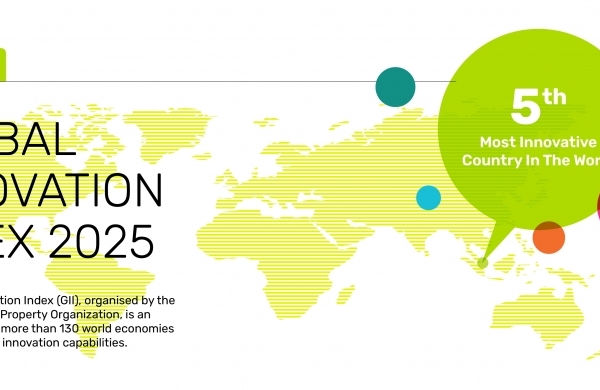Did not receive verification mail? Please confirm whether the mailbox is correct or not Re send mail

IPR Daily
- 2022-05-13 16:22:08
TP Mazes and the Global Tax for Multinational Companies-Part 2
The first part please click here.
Google's Irish parent company is not under Alphabet Inc but of two companies located in Bermuda, of which 99% belongs to Google Bermuda Limited, while 1% belongs to Google Bermuda Unlimited Company. It was reported that Google channeled €19.9 billion to Bermuda in 2017, up €4 billion more than in 2016.
In 2019, according to information provided by Icex, Google carried out a $75.4 billion profit shifting from Ireland to Bermuda. The so-called 'double Irish' forms part of tax planning that takes advantage of the unharmonised situation between the US and Irish tax regulations. Ireland considers Google to be a multinational company tax resident in Bermuda (Google Bermuda Limited), and the US does Google Ireland Unlimited to be resident in Ireland, with its registered tax domicile.
Nevertheless, in 2020, Google stopped using the 'double Irish' system, by which it avoids taxes through Ireland, and decided to establish all its IP in the USA. This change is conditioned by the reform of tax legislation in Ireland and the US. For ten years, the American country had taken advantage of Ireland's low taxation to concentrate the invoicing of its services in its subsidiary in this country and divert the profits to Bermuda, where no corporate income tax is paid.
In the Netherlands, Google uses a strategy known as a 'conduit company', acting before royalties are paid to Google Holdings. Irish companies are not required to withhold tax on royalties paid to companies in other European Community countries. To avoid the 20% withholding tax, Google Ireland Limited pays royalties to a Dutch subsidiary, which pays all copyright to Google Holdings, Ireland. In other words, a cycle of moves so that income generated in one country is managed from two others and taxed in a third, the latter with a lower tax rate.
The Dutch system is estimated to cost the rest of the world a minimum of 22 billion euros per year in evaded tax revenues with the 'Dutch sandwich', whereby money flows through mailbox companies with no physical offices, employees, or real activity, which are set up by multinational companies such as Google in the Netherlands. The companies decide to transfer their profits to the Netherlands, where they are taxed at a lower rate and once legalized, the profits are transferred to the Bermuda Islands.
In 2016, Google transferred $19.2 billion to a special corporation in the Bermuda Islands, according to the Dutch Chamber of Commerce, exceeding the previous year's figure by 7%. A higher figure was calculated in 2018, around €24.5 billion from the Netherlands to the islands, exceeding 2017's €19.9 billion.
From 2021, the Netherlands collected a withholding tax on interest and royalties to low tax countries, i.e. if corporate profits on intellectual property pass through the Netherlands to a recognised tax haven as the Bermuda Islands, then a tax must be paid in the Netherlands. This saves about 10% of international tax evasion that is done through that country.
The Netherlands is not alone in this tax loophole. There is the so-called 'Dutch-Irish double sandwich', whereby a multinational company such as Google establishes its headquarters in Ireland and then creates a subsidiary in a tax haven such as Bermuda, transferring the intellectual property rights to it. As the company would have to pay a tax to the Irish Treasury on the royalties it transfers to the tax haven, it establishes an intermediate subsidiary in the Netherlands, which does not impose this tax.
This case never went to court because several elements determined it could not be considered tax avoidance: The agreement with the IRS to give the license was the starting point. The change of location to Bermuda, the Dutch tax advantages, and finally, the tax deferral is the most used technique for American taxpayers. Google pays 35% income tax on its US source income but only 2.4% on its foreign scheme. If the Bermuda subsidiary distributes dividends, these would be taxed at 35% in the US.
The profits of the Bermuda subsidiary are included in the consolidated group of companies and public information due to its listing on the New York Stock Exchange. These profits are then reflected in the share price without the need for its effective distribution, thus avoiding the US tax on foreign dividends.
However, the context changed, as the corporate tax levied at 35% of profits in the American country was reduced to 21% during Donald Trump's Administration for those companies that return their profits to the US.
On the other hand, in 2021, the countries comprising the G-7 reached a historic agreement, creating a global corporate income tax of 15% for large companies, a percentage that could increase to 20% for those companies whose profits exceed a minimum profit margin of 10%, as in the Google case.
In the same year, 136 countries agreed to a global minimum tax of 15%, effective from 2023, as well as a system for multinationals to pay where they operate, even if they are not physically present. The purpose is to prevent large multinationals such as Google from relocating their headquarters to another country where they have a much more favourable tax treatment, in addition to making them pay in the countries where they operate. The OECD, responsible for this major change, estimates that economies will collect an extra $150 billion in taxes per year.
Both pillars will support governments in collecting the revenues needed to repair their budgets and balance sheets while investing in essential public services, infrastructure, and the necessary measures to optimise the solidity and quality of project management in the recovery from the effects of COVID-19.
Among these countries is Ireland, which, by accepting the OECD agreement to raise its corporate income tax to 15%, ended the low-tax policy that enabled it to become one of Europe’s leading technology centres.
Source: internationaltaxreview.com
Editor: IPR Daily-Selly
- I also said the two sentence
- Also you can enter 140words
 TOP IPR U.S. Lawyers 10 & Firms 10 Selection Officially Launched by IPR Daily
TOP IPR U.S. Lawyers 10 & Firms 10 Selection Officially Launched by IPR Daily WIPO Global Innovation Index 2025: China Enters Top 10
WIPO Global Innovation Index 2025: China Enters Top 10 Singapore ranks 5th in the 2025 Global Innovation Index; climbed two spots in Innovation Outputs
Singapore ranks 5th in the 2025 Global Innovation Index; climbed two spots in Innovation Outputs Federal Circuit lacks jurisdiction over award that doesn’t raise issue of patent law
Federal Circuit lacks jurisdiction over award that doesn’t raise issue of patent law


